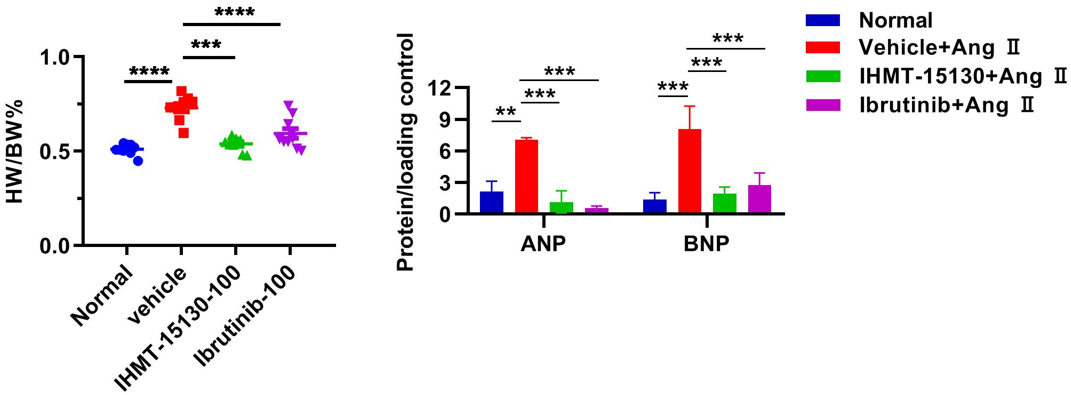
A research team led by Prof. LIU Qingsong from the Hefei Institutes of Physical Science of the Chinese Academy of Science has developed IHMT-15130, a selective and irreversible inhibitor of Bone marrow kinase in chromosome X (BMX) kinase, which showed robust efficacy in preclinical models of cardiac hypertrophy.
Published in ACS Chemical Biology, the study highlights the compound's dual role in suppressing inflammation and reversing pathological heart muscle thickening, positioning it as a promising candidate for treating this major cardiovascular disorder.
Cardiac hypertrophy, characterized by abnormal heart muscle thickening, is a major contributor to heart failure, arrhythmias, and cardiovascular mortality. Despite its prevalence, therapies targeting the molecular mechanisms linking inflammation to myocardial remodeling remain limited. The X-linked bone marrow tyrosine kinase BMX, a critical endothelial signaling regulator, has emerged as a validated target due to its aberrant activation in pro-inflammatory pathways underlying hypertrophy.
IHMT-15130 covalently binds to the cysteine 496 residue (Cys496) in BMX kinase's active site, achieving nanomolar potency (IC50 = 11.9 nM). Unlike dual BTK/BMX inhibitors, it exhibits >2,000-fold selectivity for BMX over CSK kinase (IC50 > 25,000 nM), drastically reducing risks of atrial fibrillation and bleeding associated with off-target CSK inhibition. This selectivity represents a major advancement in targeted kinase therapy.
In vitro studies showed IHMT-15130 potently suppresses pro-inflammatory cytokines production (TNF-α, IL-6) and inhibits NF-κB signaling in endothelial cells. In angiotensin II-induced mouse models, the compound significantly reduced left ventricular hypertrophy with no observed toxicity. These findings validate its dual mechanism—addressing both inflammation and myocardial remodeling—and highlight its therapeutic translational potential.
"This selective inhibitor overcomes limitations of broad-spectrum kinase drugs, offering a safer therapeutic window for inflammation-driven cardiac hypertrophy," noted Prof. LIU.
The study was supported by the National Natural Science Foundation of China, the Anhui Province Major Science and Technology Project, and CAS Youth Innovation Promotion Association.

IHMT-15130' Effects in Angiotensin II-induced Mouse Models of Cardiac Hypertrophy (Image by QI Shuang)